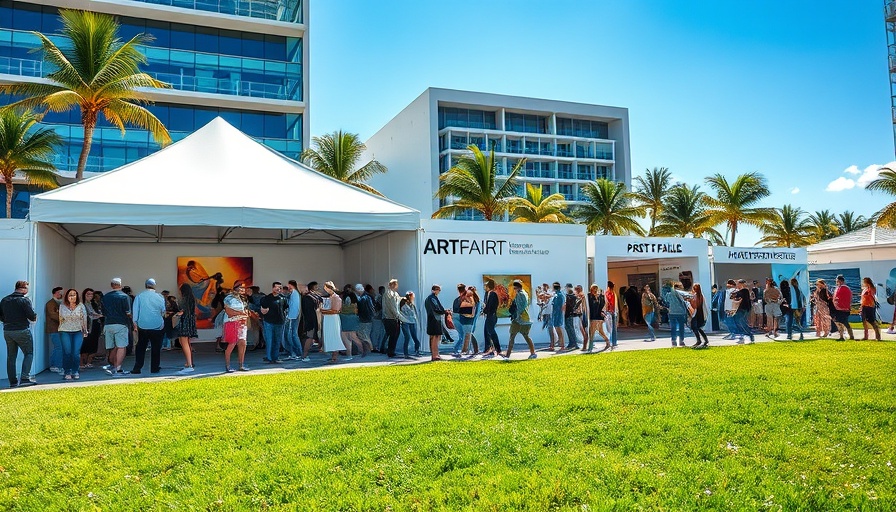
The Unraveling Tale of Fake Warhols
In a shocking turn of events, Miami-based art dealer Leslie Roberts faces serious legal challenges for allegedly selling counterfeit Andy Warhol artworks, sparking fierce discussions about authenticity and trust in the art world. With a history rooted in deception, this case raises questions about how collectors and investors can navigate the murky waters of art sales today.
Why Authenticity Matters in Art
For collectors, the allure of owning a piece of art from a revered artist like Andy Warhol is undeniable. However, as this case highlights, authenticity is the cornerstone of value in the art market. Warhol, known for his iconic pop art pieces, has had his signature style replicated many times, making it difficult for even seasoned collectors to distinguish between genuine works and fakes. The importance of due diligence becomes critical—for both buyers and sellers.
Lessons from the Art Community and Its Response
Reactions to the charges against Roberts have been met with a mixture of disbelief and a call for a more rigorous verification process within the art community. Many art lovers in Philadelphia and beyond are now questioning the systems in place for validating artwork. Collectors are urged to partner with reputable galleries and authentication services to ensure the integrity of their purchases.
The Broader Impact on Art Collecting
This incident does not just affect Roberts; it sends ripples throughout the art world. Especially for high-net-worth individuals, understanding the risks of purchasing art becomes crucial. Experts suggest creating an art advisory team comprising art historians and legal experts to navigate potential pitfalls in buying high-value pieces.
Collecting Art: A Personal Journey
For many, art collecting is not just about monetary investment but also a personal journey. Each piece tells a story, connecting collectors to history, culture, and individual artists. Engaging with authentic art can foster deeper community connections—transforming a simple investment into a passionate pursuit. Yet, the recent scandal serves as a reminder of the responsibilities and the potential heartache involved in collecting.
Continued Conversations About Trust in the Art Market
As art dealers, galleries, and collectors reassess practices, this situation presents a unique opportunity for dialogue. Discussions about the authenticity of artwork, transparent transactions, and ethical selling practices are more pertinent now than ever. Engaging in these conversations is essential for fostering a community that values integrity.
As the fallout from this case continues, the art community must remain vigilant. Buyers should prioritize education and verify artworks before committing to purchases. After all, safeguarding the sanctity of art enriches everyone involved.
 Add Row
Add Row  Add
Add 




Write A Comment